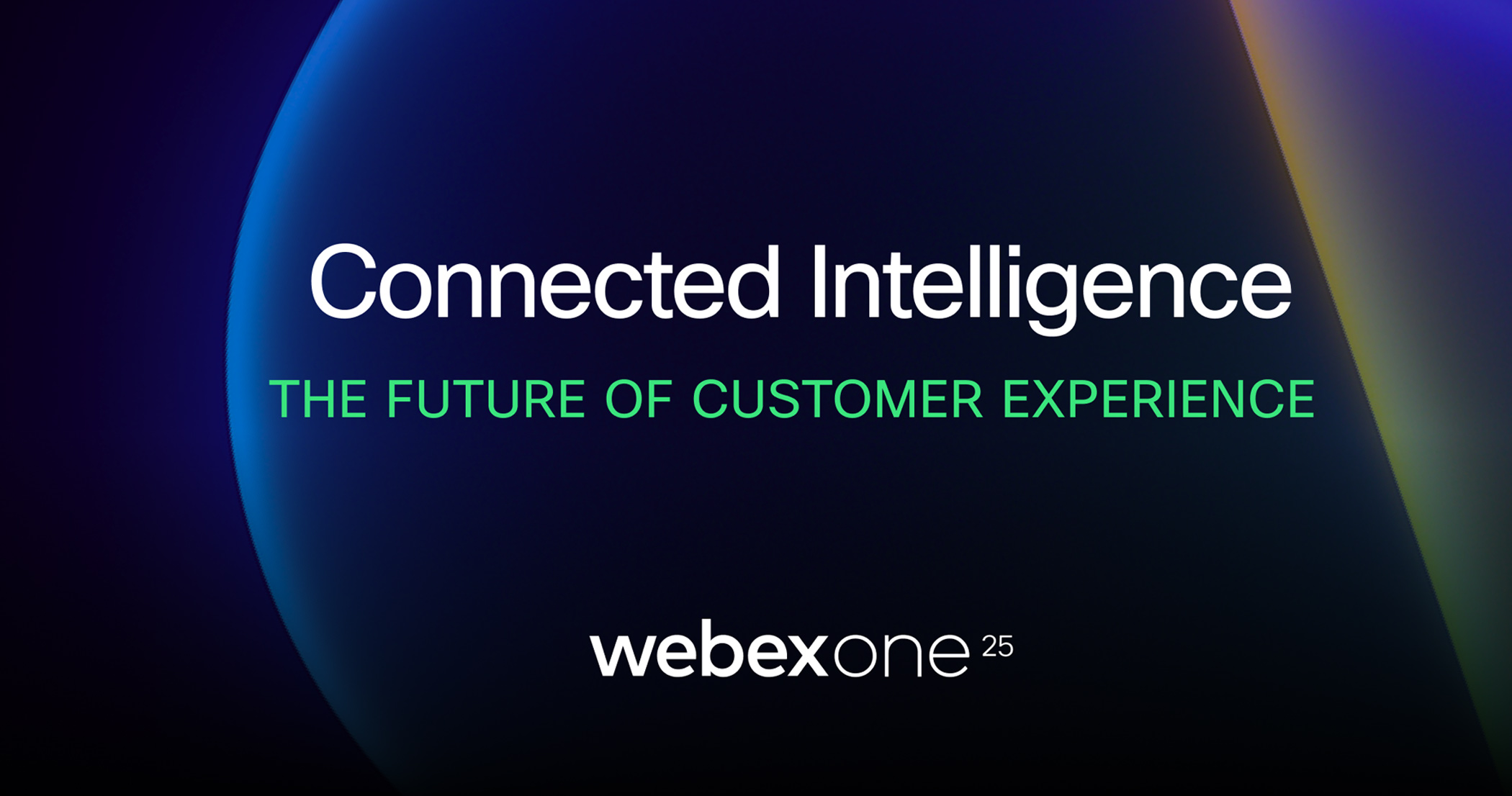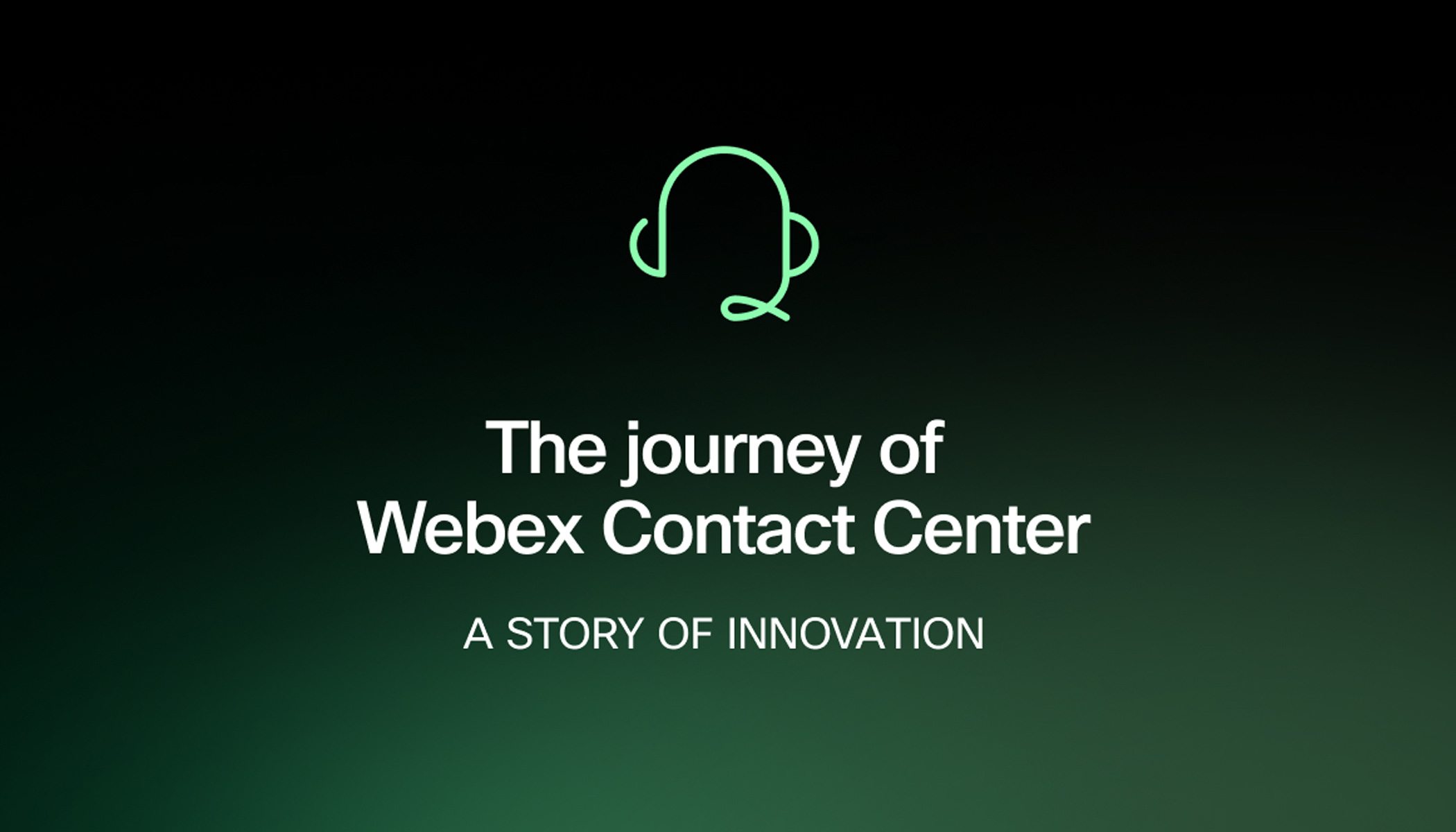Get ahead of these critical trends—and deliver exceptional CX in the coming year.
As customer experience leaders make plans for 2025, it’s important to anticipate what’s around the corner and assess how future developments might impact customer experience (CX) strategy and execution.
For many organizations, delivering outstanding CX remains a difficult challenge; a recent global study conducted by Cisco showed that many customers feel let down by the experiences they receive from brands. Only 25% of customers said they were very satisfied with their last service engagement—and 94% have abandoned interactions due to poor experiences.
This paints a clear picture of the gap between customers’ expectations and brands’ ability to deliver. However, in 2025, this picture will start to change, thanks to the convergence of four key trends that will reshape the CX landscape.
1: AI agents will revolutionize self-service
The advancements in AI we’ve seen in recent years will continue to accelerate in 2025, and automated customer engagement solutions will become more intelligent. A new generation of AI agents will provide highly personalized, conversational self-service options across voice and digital channels.
Unlike existing virtual agent solutions, advanced AI agents will engage customers in intelligent, human-like conversations rather than robotic service interactions—and offer faster, more effective resolutions. By focusing AI on intelligent customer engagement rather than simple call containment, forward-thinking contact centers will remove frustration for customers and free human agents to handle complex, sensitive, or high-value interactions.
“In 2025, brands will increasingly adopt AI agents that embody their unique values, personality, and purpose,” says Jay Patel, SVP & GM, Webex Customer Experience Solutions, Cisco. “These AI-driven representatives will engage with customers in ways that are deeply aligned with the brand’s ethos, ensuring interactions are authentic, meaningful, and memorable. By leveraging AI to reflect their core values, brands will create more consistent and emotionally resonant customer experiences.”
“In 2025, AI will be woven into the fabric of everyday customer service operations—including AI agents that have natural voice capabilities and the ability to act on customer requests. This will drive efficiency, personalization, and satisfaction to unprecedented levels. This mainstream acceptance will not only elevate the customer experience but also set new standards for engagement, making AI an indispensable tool for customer service.”
Jay Patel, SVP & GM, Webex Customer Experience Solutions, Cisco
New solutions will also make it much easier to build these AI agents, accelerating time to value for powerful self-service experiences that customers love. Prebuilt templates and low-code or no-code tools will enable organizations to rapidly expand effective self-service experiences without putting a major strain on resources.
“AI will move from being the preserve of technical specialists to becoming accessible to generalists within enterprises, empowering a broader range of employees to leverage AI,” says Vinod Muthukrishnan, VP & COO, Webex Customer Experience Solutions, Cisco. “This democratization of AI will enable business generalists to utilize AI-driven tools to make informed decisions, optimize workflows, and enhance customer interactions without needing deep technical expertise.”
Cisco’s global study showed that 79% of CX Leaders (companies with the highest business performance) have an AI virtual agent—but only 7% of Laggards do.
2: Hyper-personalization will become table stakes for CX
Another key area where AI advancements will have a major impact is personalization. AI will make it far simpler for organizations to unlock insights from the wealth of customer data generated by their contact centers, helping them anticipate customer needs, appeal to their preferences, and create more upsell and cross-sell opportunities. Leading organizations will use these AI capabilities to deliver hyper-personalized experiences that transform CX, boost NPS and CSAT scores, and build long-term customer loyalty.
With the right AI-powered tools, organizations will be able to orchestrate and automate hyper-personalized customer journeys and seamless experiences as customers move between channels and automated and human-assisted interactions.
“In 2025, the shift towards personalized AI will not only empower users with more efficient and tailored communication but also anticipate their needs, making interactions more intuitive and proactive. This evolution will significantly enhance the overall customer experience, creating a more dynamic and responsive digital environment.”
Sudarshan Dharmapuri, VP Product Management, Webex Customer Experience Solutions, Cisco
One important component of these hyper-personalized experiences will be proactive communications. Brands that proactively engage customers with automated, personalized communications will build satisfaction and loyalty by showing customers they’re known and valued and solving issues before they occur. For example, sending customers helpful, timely reminders about upcoming appointments or payments—and allowing them to respond in the same channel—eliminates customer effort (and reduces inbound inquiries).
As adoption grows during 2025, these proactive experiences will become the norm, creating heightened customer expectations around how brands engage with them.
61% of CX Leaders deliver proactive communications using AI. Only 6% of Laggards do.
3: RCS adoption will skyrocket
Over the last few years, more brands have enhanced their customer interactions with Rich Communication Services (RCS). But now that RCS is supported on iPhone as well as Android, its reach has expanded dramatically, offering businesses a messaging channel that’s now native to billions of devices worldwide.*
In light of this, we expect to see a significant increase in RCS adoption in 2025 as more businesses than ever realize the value it can offer. Over the next 12 months, RCS will stake its claim as the industry standard for business messaging—and when you consider its capabilities, it’s easy to see why.
With support for rich media and interactive components, RCS allows businesses to create engaging, two-way experiences for everything from promotions to appointment reminders. And with end-to-end encryption, and verified and branded sender profiles, RCS is also an ideal way to build customer trust.
“In 2025, the landscape of mobile communication will be transformed as RCS expands its reach, unifying Android and iOS devices under a common standard for both P2P and A2P interactions. With major operators set to launch RBM for iOS globally, we anticipate our reach to more than double, marking a new era of seamless and rich messaging experiences across platforms.”
Ramy Riad, Director Innovation & messaging strategy, Webex Customer Experience Solutions, Cisco
4: CX data will have to become unified
Optimizing CX with AI agents and hyper-personalized experiences across multiple channels—including RCS—will require unified customer data. In large, complex organizations, unifying data is far from simple, but without a holistic view of customer data, it will be impossible to deliver the intelligent, connected experiences customers demand.
In 2025, we expect to see organizations making significant progress toward unifying data from disparate sources to create a complete view of every customer journey. By unifying data from multiple enterprise systems and engagement channels, organizations will transform their customer service and communications capabilities.
With easy access to relevant, up-to-date information, human and AI agents will be able to identify the fastest path to resolution and handle customer inquiries efficiently, effectively, and confidently.
A full understanding of every customer’s preferences and needs will enable brands to realize the full value of their AI investments, anticipating issues and reaching out proactively to make customers’ lives easier and build trust.
Holistic insights into customer journeys will also allow organizations to identify emerging trends, hidden friction points, and opportunities to optimize experiences with intelligent, personalized, and helpful interactions at every touchpoint.
“The return on investment of AI in enhancing customer experience will become a critical topic in boardroom discussions, with executives prioritizing AI investments that demonstrably improve customer satisfaction and loyalty. By the same token, AI use cases that have not proven business outcomes will fall by the wayside.”
Vinod Muthukrishnan, VP & COO, Webex Customer Experience Solutions, Cisco
Prepare to transform CX in 2025
As you plan for the year ahead, it will be important to determine how to take advantage of these key trends. If you’d like to discuss your CX strategy options, get expert advice on the best way forward, and learn more about the tools that can help, get in touch with our CX specialists.





